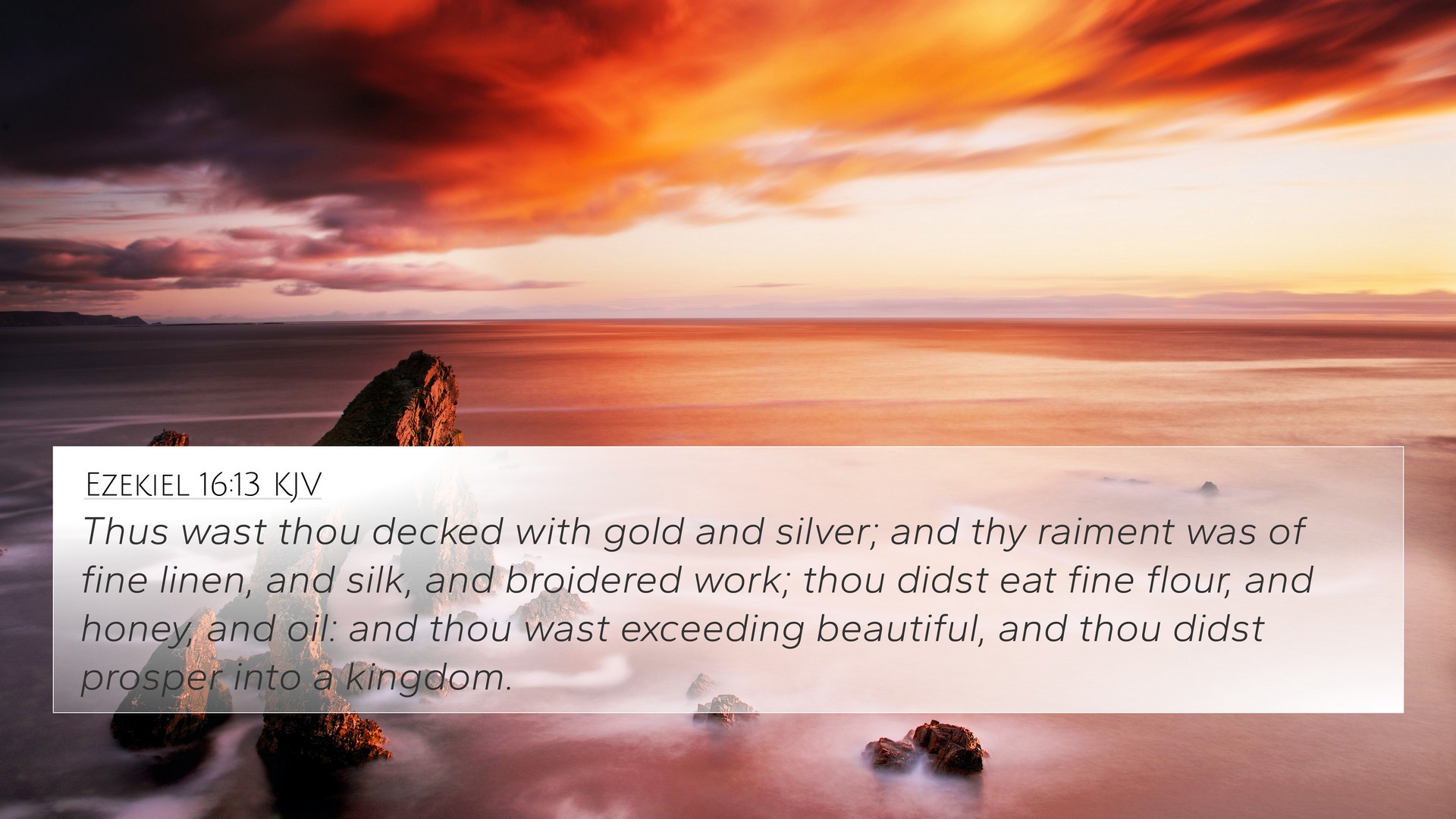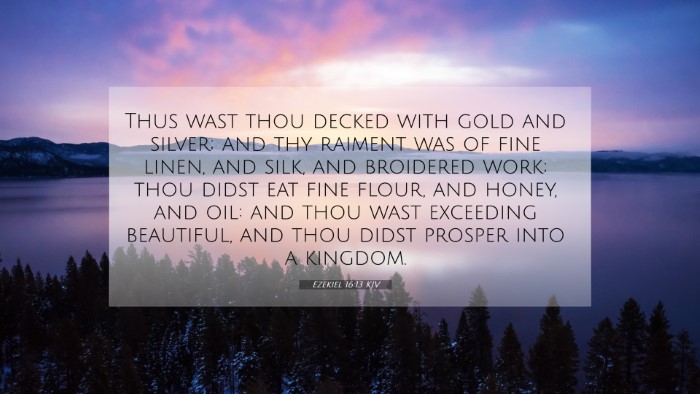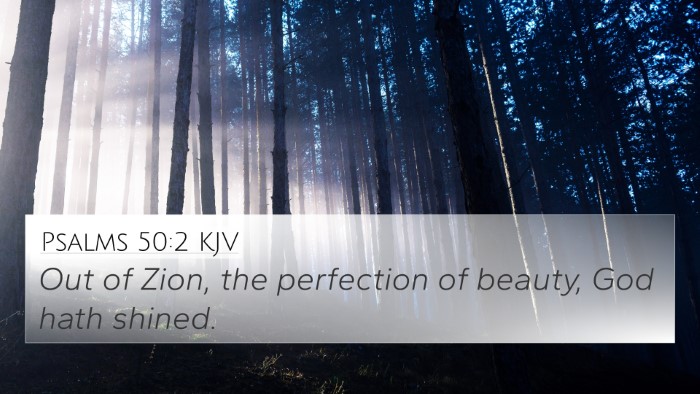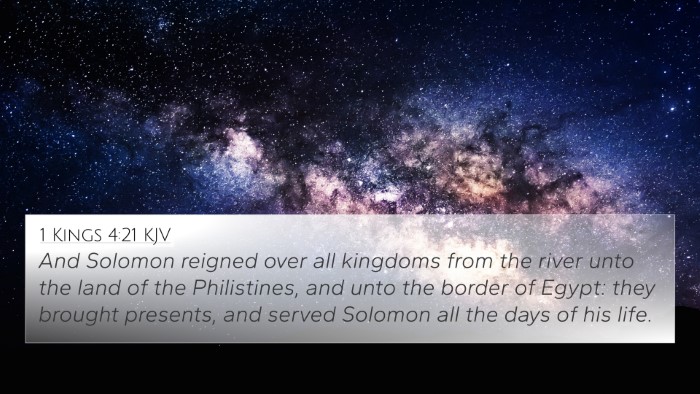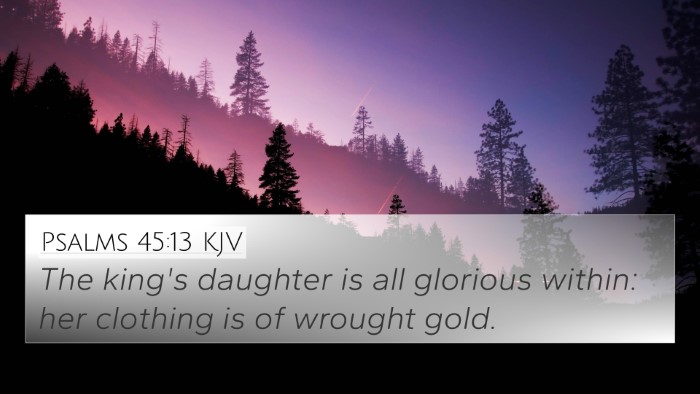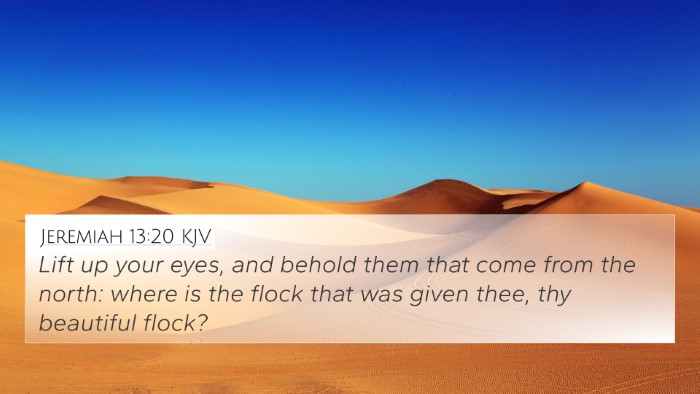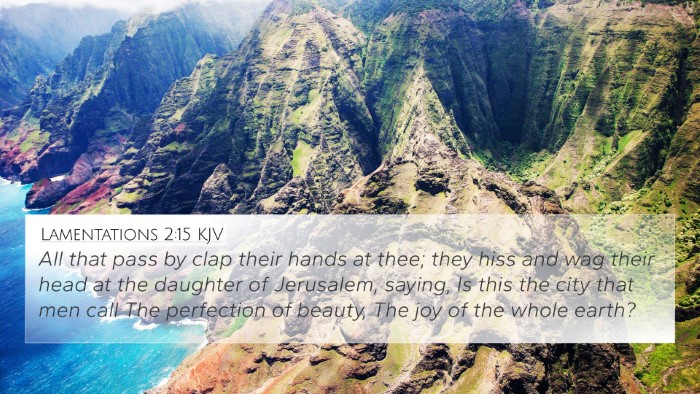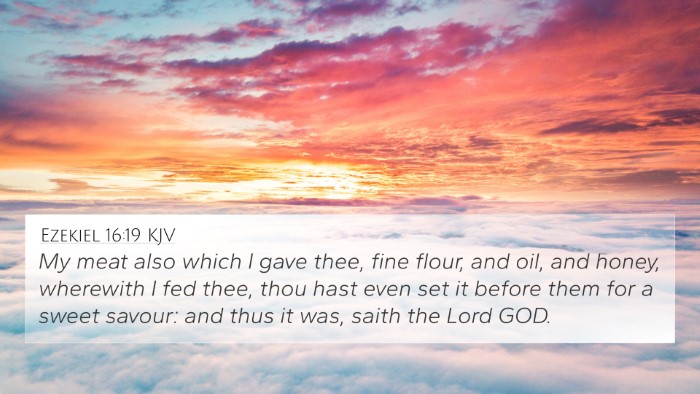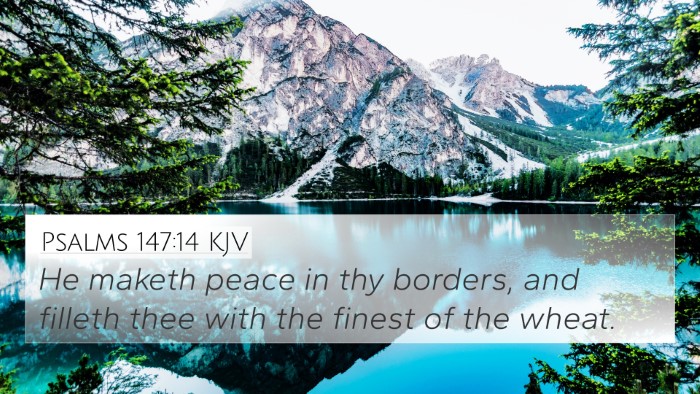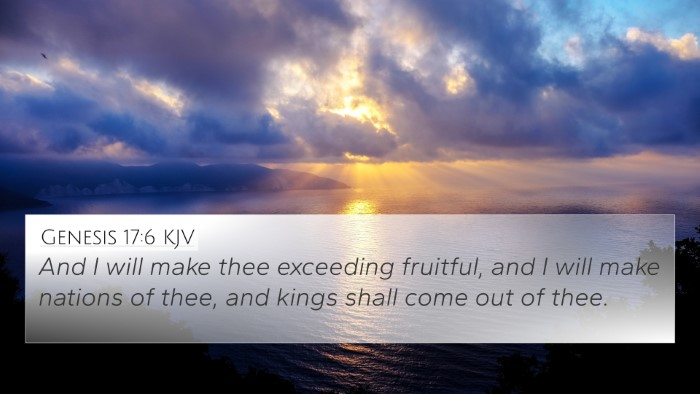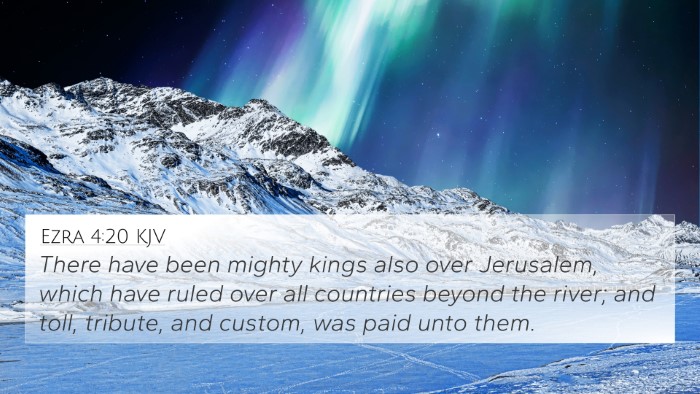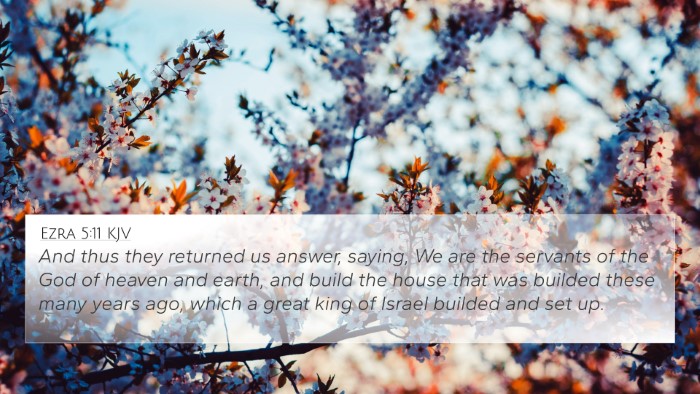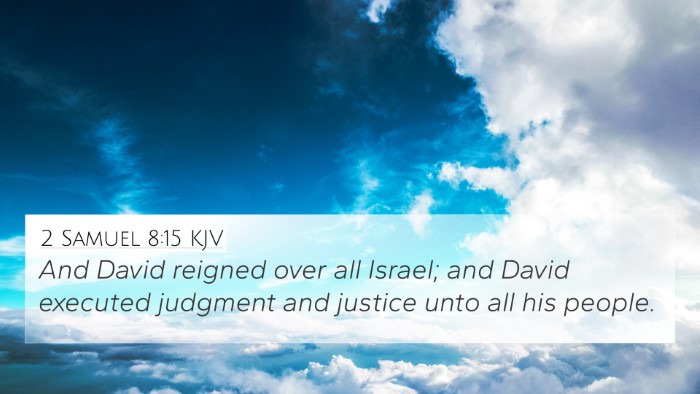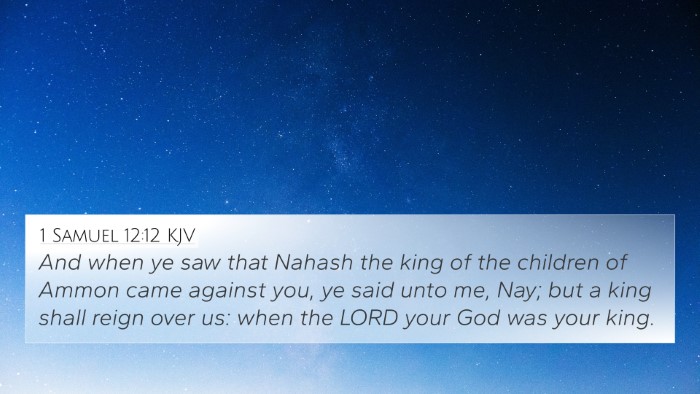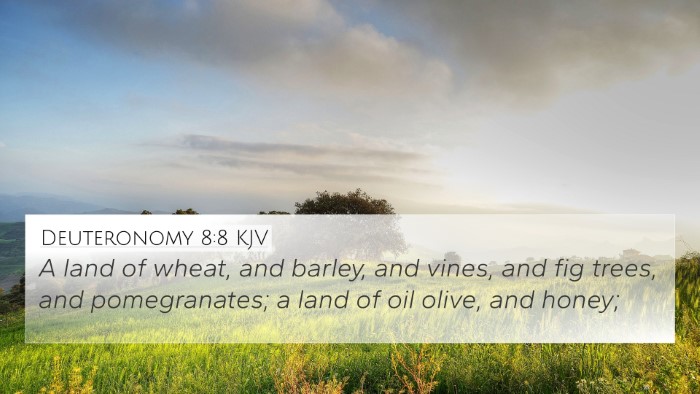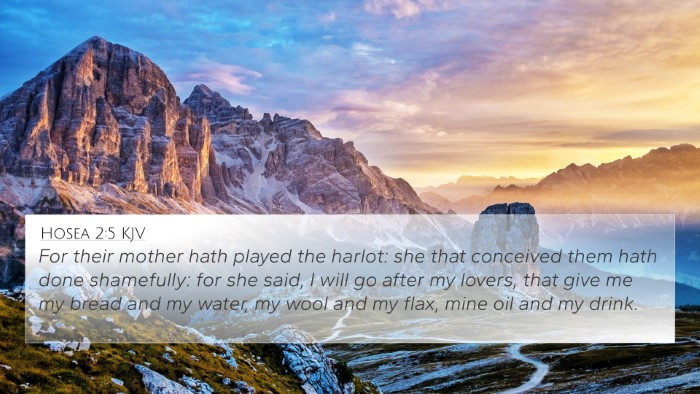Ezekiel 16:13 Explained
Bible Verse: Ezekiel 16:13 – "Thus was thou decked with gold and silver; and thy raiment was of fine linen, and silk, and broidered work; thou didst eat fine flour, and honey, and oil: and thou wast exceeding beautiful, and thou didst prosper into a kingdom."
Summary of Meaning
This verse reflects a powerful imagery of Israel's former glory and abundance through divine favor. The language used indicates richness, beauty, and blessings that the nation enjoyed, likening Israel to an opulent bride adorned by her husband. The descriptions emphasize the transition from grace and favor to a state of abandonment and shame that follows in subsequent verses, revealing the consequences of unfaithfulness.
Insights from Commentaries
Matthew Henry Commentary
Matthew Henry highlights that this verse exemplifies God's love for Israel, reflecting His generosity in providing spiritual and material blessings. The adornments, such as gold and silver, represent God's kindness, while the mention of fine linen and silk symbolizes purity and holiness. Henry notes that Israel’s beauty and prosperity were not from their own merit but a demonstration of God's glory.
Albert Barnes Commentary
Barnes emphasizes the symbolism of the ornaments as metaphorical representations of God's gifts. The statement about Israel being "exceeding beautiful" conveys the idea that divine favor sets Israel apart from other nations. He also discusses the significance of the prepared feast, which indicates a state of comfort and security, affirming that the nation was blessed because of its covenant with God.
Adam Clarke Commentary
Clarke offers detailed analysis concerning the textures and luxuries mentioned, suggesting that they mirror the excesses that later led to Israel’s downfall. He relates this richness to Israel's covenant relationship with God, but he warns that such blessings come with responsibilities—namely faithfulness and gratitude towards the Provider.
Connections Between Bible Verses
This verse has numerous connections with other scriptures that explore the themes of covenant, divine favor, and the consequences of spiritual unfaithfulness. Here are 10 relevant cross-references:
- Isaiah 61:10 - “I will greatly rejoice in the Lord, my soul shall be joyful in my God; for he hath clothed me with the garments of salvation, he hath covered me with the robe of righteousness...”
- Revelation 19:7-8 - “Let us be glad and rejoice, and give honor to him: for the marriage of the Lamb is come, and his wife hath made herself ready. And to her was granted that she should be arrayed in fine linen, clean and white...”
- Deuteronomy 28:12 - “The Lord will open to you his good treasury, the heavens, to give the rain of your land in its season and to bless all the work of your hands...”
- 1 Peter 2:9 - “But you are a chosen generation, a royal priesthood, a holy nation, a peculiar people...”
- Hosea 2:13 - “And I will visit upon her the days of Baalim, wherein she burned incense to them, and she decked herself with her earrings and her jewels…”
- James 1:17 - “Every good gift and every perfect gift is from above, and comes down from the Father of lights...”
- Psalm 45:13-14 - “The king's daughter is all glorious within: her clothing is of wrought gold. She shall be brought unto the king in raiment of needlework...”
- Matthew 6:29 - “And yet I say unto you, That even Solomon in all his glory was not arrayed like one of these.”
- Jeremiah 2:32 - “Can a maid forget her ornaments, or a bride her attire? Yet my people have forgotten me days without number.”
- Ephesians 5:27 - “That he might present it to himself a glorious church, not having spot, or wrinkle, or any such thing...”
Thematic Connections and Conclusion
The analysis of Ezekiel 16:13 invites readers to consider the broader narrative of the Bible concerning God’s love, the call for faithfulness, and the devastating results of turning away from divine influence. Through the lens of inter-Biblical dialogue, it becomes evident that Israel's plight resonates through many books of scripture, accentuating God's enduring desire for His people's faithfulness.
This understanding enriches the reader’s grasp of the Old Testament context and prompts a reflective approach to the New Testament's fulfillment of these themes, unveiling a continual call to divine fidelity. As you study cross-references, consider how other scriptures illuminate the themes presented in Ezekiel 16:13, forming an extensive tapestry of truth that reveals God's character and the importance of covenant relationships.
